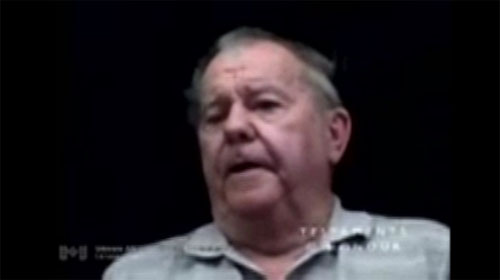Atomic Bomb
Heroes Remember
Atomic Bomb
Well we were there until 1943 to 1945. After the war was over,
well we were right there when, when that plane took
off carrying the atomic bomb. Yeah.
Interviewer: Were you aware of what was going on?
We knew something big was going on, we didn't know
just what it was, but we knew it was something big.
Well, see, Japanese have, I don't know how many characters in
their language, but there's only one Morse Code, and so they
have to take three or four of our letters to make one of their
symbols. So they can send very fast cause all they do is one
squiggly little mark and it'd cover four or five figures, you
know. So we had to copy it fast because we had to copy off five,
or four or five or whatever it was. And then we would code it
again, and we'd send it via radio, taped. It would go back to
San Francisco and then to Washington to all of the Intelligence
people, and they would break as much, we, we would do a certain
amount of that breaking, you get to know a person by their
wrist. The wrist is just the same as a voice, you know.
Interviewer: I've heard that.
Oh yeah, you, you can tell. And we'd, we'd name them after you
got working. Your name Harry or who, whoever, and then we would
make notes of when they moved, when they move
from one station to another station we would know that.
Related Videos
- Date modified:




